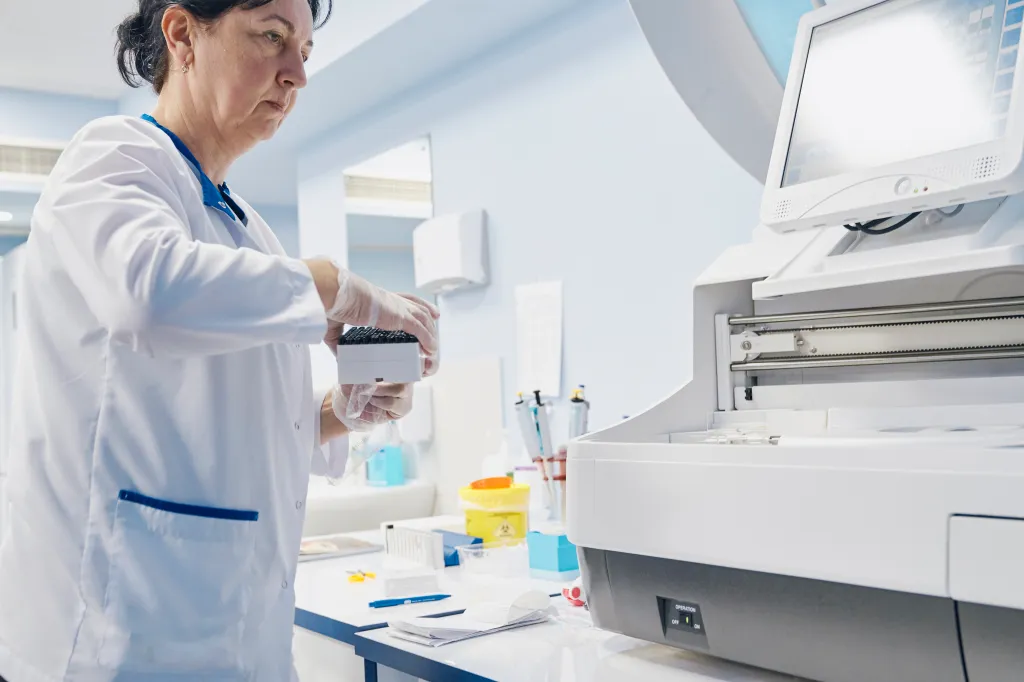It’s time to close the gender equity gap in cancer care
Creating city-led solutions to transform health systems around the world, in cancer and beyond.

Co-authored by Isabel Mestres, CEO, City Cancer Challenge and Natia Verdzadze, Tbilisi City Manager, City Cancer Challenge
As we approach 30 years since the UN’s adoption of the Beijing Declaration and Platform for Action for Women’s Rights – considered the most transformational global plan to advance gender equality worldwide – 189 countries have answered its call and collectively made significant strides towards closing the gender gap by increasing access to education, reducing violence against women, decreasing maternal mortality rates, and more. With this milestone just ahead, however, it remains all too clear that our work towards equality is far from over.
One area where we know this to be the case is in health. The global burden of cancer has shifted dramatically in recent decades, with this unrelenting disease now expected to become the world’s leading cause of death within the next 15 years. Currently, 70% of global cancer deaths occur in low- and middle-income countries (LMICs), home to nearly two billion women. This demographic faces the highest disease and financial burdens from cancer of anyone else worldwide. Of the approximately 2.3 million women who prematurely lose their lives to cancer every year, as found in 2023’s Women, power, and cancer: A Lancet Commission report, more than one-third – an estimated 800,000 per year – could potentially be saved if given better access to optimal care. Changing the course of these statistics will take an incredible effort but allowing them to get worse is untenable.
At City Cancer Challenge (C/Can), we’ve recently undertaken a multi-year commitment, ‘Cities Taking Action for Gender Equity in Cancer Care,’ announced at the Clinton Global Initiative’s 2024 Annual Meeting, to address gender equity in cancer care in LMICs – beginning with three cities that have made gains in this area: León, Mexico; Nairobi, Kenya; and Tbilisi, Georgia, collectively home to 3.8 million women. The initiative, which is calling on additional stakeholders to join its ranks, ultimately aims to integrate a gender-responsive approach into cancer care across 15 cities in Africa, Asia, Europe, and Latin America, leveraging innovative, locally driven interventions.
This new commitment is an important step towards realizing our vision of transforming cancer care in resource-limited settings, with the specific aim of remedying the widening gender gap in LMICs. Gender equity in particular should be seen as a cornerstone of health progress in low- and middle-income countries, not only for its direct benefits to women’s health but also for its broader impact on families, communities, and economic development. To achieve equitable access, we need to put women’s physical, mental, and financial health at the center. The 2023 Lancet Commission rightly underscored the inequitable burden women around the world face in accessing cancer care; addressing the root causes of these gaps must start at the local level.
Through city-level partnerships, we work with local governments to understand gender gaps in cancer care, address them through tailored interventions, and generate data to scale best practices for impact. For example, in Tbilisi, nine projects conducted in partnership with City Hall and the Ministry of Health have already resulted in significant achievements: patients now receive medications directly at treatment centers, making treatment more accessible and shifting the focus to recovery; the cancer care workforce is benefitting from training aligned to international best practices, ensuring consistent high-quality care across the system; and the Breast Cancer Action Plan was developed to support implementation of the World Health Organization Global Breast Cancer Initiative in Tbilisi. Last year, these projects transitioned to the national scale-up and sustainability phase, now under the Ministry’s direct leadership, with the intention to strengthen cancer management across Georgia.
“These initiatives have fundamentally transformed how we deliver cancer care in Tbilisi, impacting not just the city, but the entire region and nation of Georgia,” said Nia Sharikadze, Head of the Medical Oncology Department at Mardaleishvili Medical Center in Tbilisi, Georgia. “By working with City Cancer Challenge, we’ve built systems that not only address current needs but create a sustainable foundation for equitable cancer care.”
By applying a gender lens, we can now help ensure that the health system adequately caters to the specific needs of women. Gathering disaggregated data, for example, will help us evaluate existing gender gaps, identify priority barriers to be addressed, and ultimately accelerate progress.
Implementing a city-level foundation of change forms building blocks that can be scaled toward global action, ensuring more equitable cancer outcomes globally. This local approach has been proven to drive transformative change and we now have an exciting opportunity to leapfrog this progress in improving women’s health. We are grateful to our enabling partners Amgen, Global Focus on Cancer (a US charitable organization supported by donations from Eli Lilly and Company), MSD, Roche and Siemens Healthineers for their dedication to this important work.
We believe our model can help change health systems across the world, in cancer and beyond, with the right collaborators, funders, and frontline leaders by our side. By focusing on cancer and demonstrating the impact of locally owned and implemented solutions, we can pave the way for sustainable systemic improvements and community-driven approaches on a broader scale—improving access and outcomes for all people.
- Isabel Mestres is the CEO of City Cancer Challenge (C/Can), a global initiative driving innovative solutions in 15 cities to improve access to quality, equitable cancer care. C/Can unites public and private sectors to create sustainable, community-led approaches that enhance cancer care worldwide. To learn more about C/Can and how to get involved visit here.
- Natia Verdzadze is the Project Manager for C/Can in Tbilisi, Georgia
To learn more about City Cancer Challenge, visit here.
